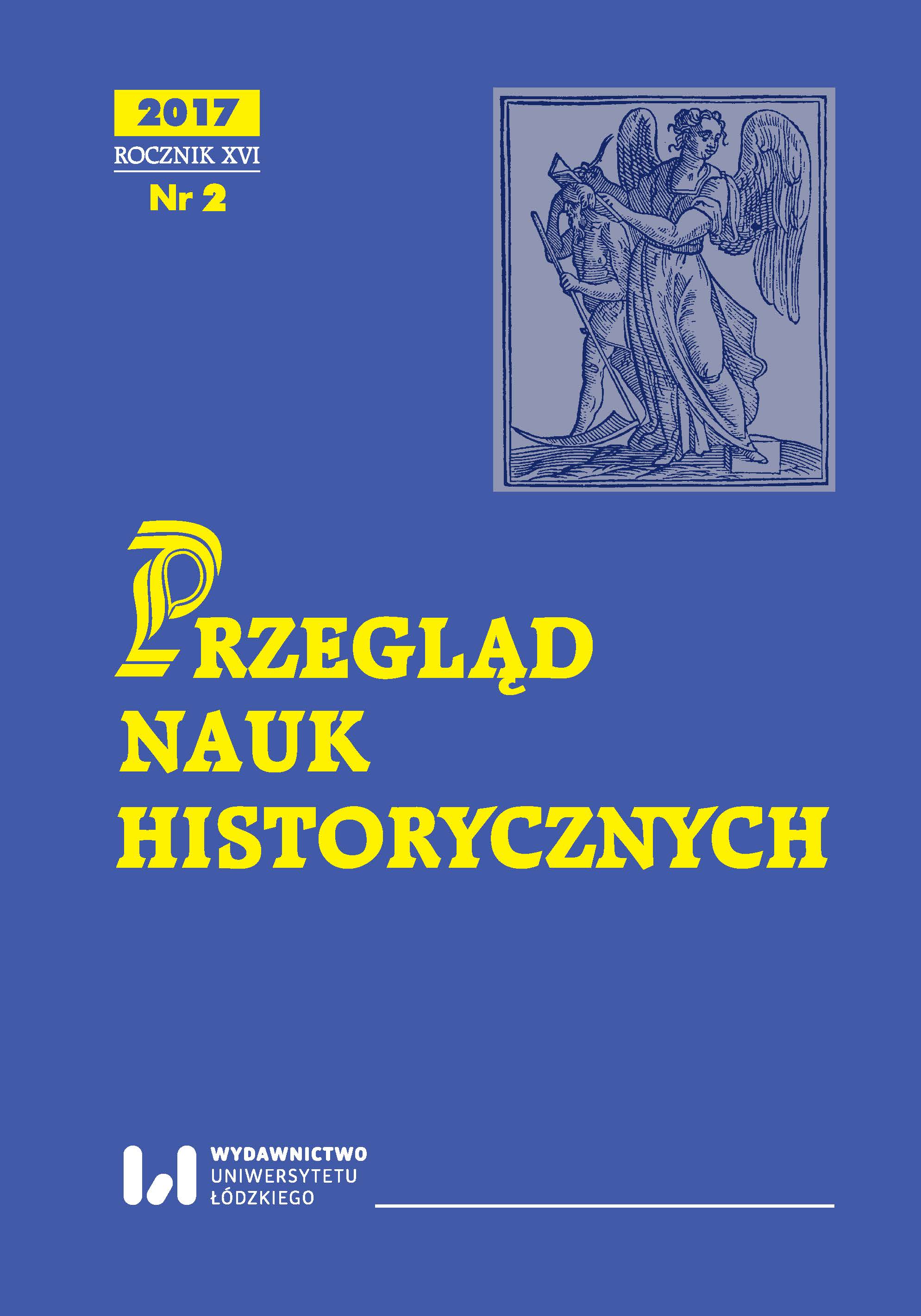Reportaż na koniec wieku. Europejskie podróże gospodarcze Cecylii hr. Plater-Zyberkówny w świetle „Kroniki Rodzinnej” (1899 r.)
A reportage at the end of the century. European economic journeys of Countess Cecylia Plater-Zyberk in the light of the „Kronika Rodzinna” (1899)
Author(s): Ewelina Maria KostrzewskaSubject(s): Cultural history, Gender history
Published by: Wydawnictwo Uniwersytetu Łódzkiego
Keywords: Catholic magazines; “Kronika Rodzinna”, reportage; Countess Cecylia Plater-Zyberk; the Kingdom of Poland’s press; travel; economic schools; czasopisma katolickie; „Kronika Rodzinna”; reportaż
Summary/Abstract: The article was prepared on the basis of the „Kronika Rodzinna”, a biweekly published from 1867 in Warsaw. It was addressed to the gentry and intelligentsia, had a literary-social, as well as diary-travel character and often described the so-called feminine issues. During its existence there were program changes. After ideological disputes of the eighties of the 19th century, editors focused on matters related to the household and education. As they followed a moderate mainstream movement of women, the professional education and activity of the latter were promoted by them. In 1899, Countess Cecylia Plater-Zyberk became the chief editor and the publisher of the magazine. She assimilated landowners’, conservative ideals with an intelligent model of an open Catholicism. During an almost one-year of her cadency, the „Kronika Rodzinna” was transformed into a popular „Czasopismo dla Rodzin Katolickich”. The editor herself inaugurated and ended her functions in a series of travel reports. Using such a modern form of journalistic report, she entered the hard-to-reach for women world of media, professional work, as well as of independent fast travels. While bringing to the common denominator the search for female economic schools in Europe, she was reporting on their civilizational condition. In the descriptions saturated with religious axiology, she presented the readers with her own reflections and social contexts of women’s emancipation. In a travel reportage she returned to the Polish ground with an idea of a social solidarity; a reconciliation of women’s aspirations with religion. The social bond was to join in a special way women from the landowners’ elites and peasant villages, while economic schools were to open to them fields of different activities and work. According to the rules of a press reportage, the story of Plater-Zyberk revealed the European reality of the late 19th century in her subjective images seen from the perspective of an aristocrat and the chief-editor of the Catholic „Kronika Rodzinna”. // Artykuł przygotowany został na podstawie „Kroniki Rodzinnej”, dwutygodnika wydawanego od 1867 r. w Warszawie. Adresowany do ziemiaństwa oraz inteligencji miał charakter literacko-społeczny i pamiętnikarsko-podróżniczy, często podejmował sprawy tzw. kwestii kobiecej. W czasie swojego istnienia zachodziły w nim przekształcenia programowe, a po wyciszeniu sporów ideologicznych w latach osiemdziesiątych XIX w. redakcja skupiała uwagę na sprawach domowych i wychowawczych. Płynąc z umiarkowanym nurtem ruchu równouprawnienia kobiet, propagowała ich zawodowe wykształcenie oraz aktywność. W 1899 r. naczelną redaktorką i wydawczynią pisma została Cecylia hr. Plater-Zyberkówna, która w swoich poglądach asymilowała ziemiańskie, zachowawcze ideały z inteligenckim modelem otwartego katolicyzmu. W okresie jej prawie rocznej kadencji „Kronikę Rodzinną” przekształcano w popularne „Czasopismo dla Rodzin Katolickich”. Sama redaktorka zaś zainaugurowała i zamknęła pełnienie swoich funkcji drukowanym w odcinkach reportażem podróżniczym. Taką nowoczesną formą dziennikarskiego sprawozdania wchodziła w trudno dostępny dla kobiet świat mediów, samodzielnych, szybkich podróży i pracy zawodowej. Sprowadzając do wspólnego mianownika poszukiwania w Europie żeńskich szkół gospodarczych, zdawała relację z ich cywilizacyjnej kondycji. W nasyconych religijną aksjologią opisach przedstawiała czytelnikom własne refleksje i społeczne konteksty emancypacji kobiet. W poincie podróżniczej relacji powracała na polski grunt z ideą solidaryzmu społecznego; pogodzenia aspiracji kobiet z religią. Więź społeczna w sposób szczególny łączyć miała kobiety z ziemiańskich elit i chłopskiej wsi, a szkoły gospodarcze otwierać im pola aktywności i pracy. W myśl reguł prasowego reportażu opowieść Plater-Zyberkówny odsłaniała europejską rzeczywistość końca XIX w. w jej subiektywnych obrazach widzianych z perspektywy arystokratki i naczelnej katolickiej „Kroniki Rodzinnej”.
Journal: Przegląd Nauk Historycznych
- Issue Year: 16/2017
- Issue No: 2
- Page Range: 139-157
- Page Count: 19
- Language: Polish

